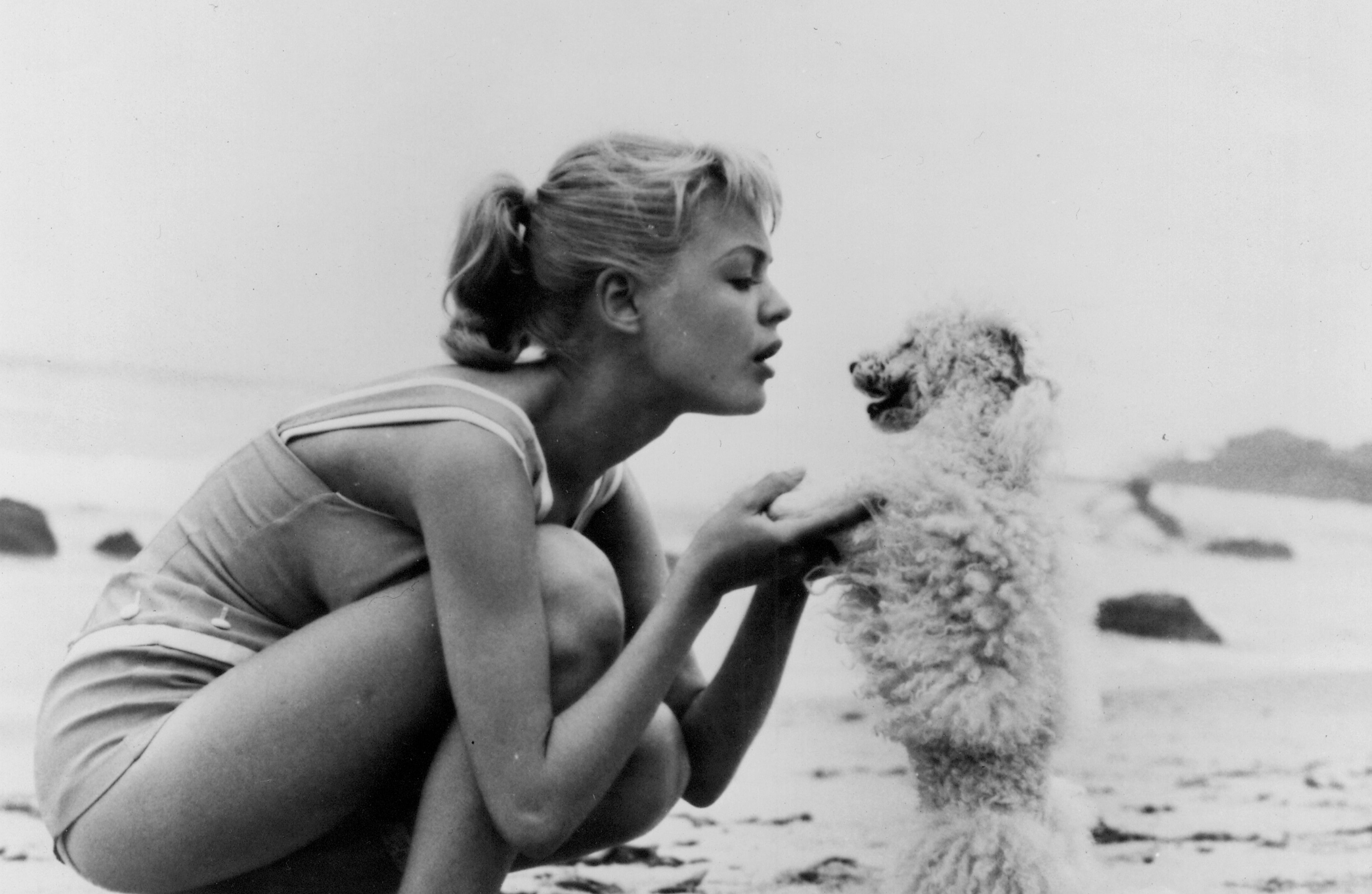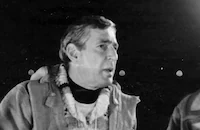1959 was a big year for Sandra Dee, the perky ingenue born Alexandra Zuck. In addition to Gidget, she also appeared in two other big films that year - as Lana Turner's daughter in the Douglas Sirk melodrama Imitation of Life, and as Molly, the female lead opposite Troy Donahue in the sexually charged A Summer Place. The success of these movies solidified Dee's status as one of the screen's most promising young actresses.
James Darren (Moondoggie) had been a student of respected acting coach Stella Adler. Like Dee, he too was considered a rising young talent at the time of Gidget's release. Also a singer, Darren lent his vocal talents to Gidget, crooning the theme song and "The Next Best Thing to Love." He went on to record such top-40 hits as "Goodbye Cruel World" and "Her Royal Majesty" later in his career.
Gidget was based on the popular novel of the same name by Frederick Kohner, who based the title character on the adventures of his own daughter, Kathy. The book was adapted for the screen by Gabrielle Upton. But no one could have guessed what a phenomenon Gidget would become. It spawned two film sequels (Gidget Goes to Rome (1963) and Gidget Goes Hawaiian, 1961), two television series (Gidget (1965-66) and The New Gidget, 1986), and several TV movies along the way. Sandra Dee did not reprise her role in any of the sequels, though co-star James Darren portrayed Moondoggie twice more in Gidget Goes to Rome and Gidget Goes Hawaiian. Unknown teenage actress Sally Field made a name for herself as the bubbly surfer girl in the original 1960s TV show. Field, of course, went on to a major acting career that included two Academy Awards for her work in Norma Rae (1979) and Places in the Heart (1984).
Sandra Dee, the original movie Gidget, married pop idol Bobby Darin at the peak of her career in 1960. Though she continued to make movies including two of the Tammy films made popular by Debbie Reynolds and three movies with her husband, her career soon fizzled. When she divorced Darin in 1967, she found that there were few roles at the time for a divorced 26-year-old mother who was used to playing the wholesome role of America's teenaged sweetheart. James Darren went on to co-star in the hit 1980s television show T.J. Hooker, while Cliff Robertson won an Academy Award as Best Actor for the 1968 film Charly.
Producer: Lewis J. Rachmil
Director: Paul Wendkos
Screenplay: Frederick Kohner (book Gidget), Gabrielle Upton
Art Direction: Ross Bellah
Cinematography: Burnett Guffey
Film Editing: William A. Lyon
Original Music: Fred Karger, Stanley Styne
Cast: Sandra Dee (Gidget), Cliff Robertson (The Big Kahuna), James Darren (Moondoggie), Arthur O'Connell (Russell Lawrence), Mary LaRoche (Dorothy Lawrence), Joby Baker (Stinky), Tom Laughlin (Lover Boy), Jo Morrow (Mary Lou).
C-96m. Letterboxed.
by Andrea Foshee































